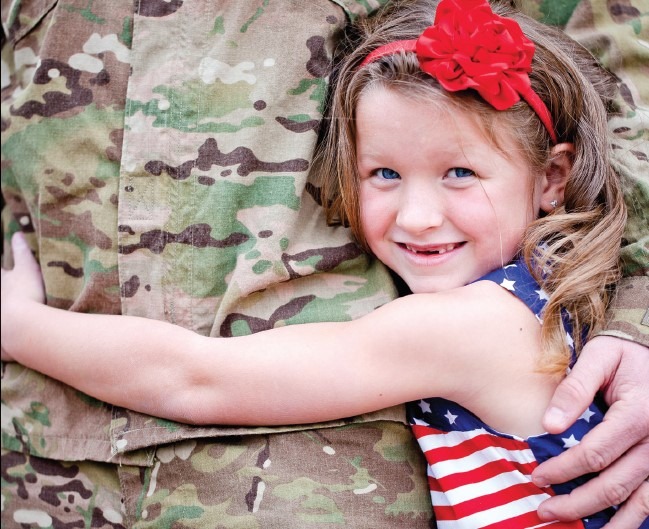April is the Month of the Military Child. Military children are bright, resilient, adaptable, well-travelled, bright, inquisitive and eager to help. At Mt. Carmel, we aim to serve families of all shapes and sizes, and this includes their children. With activities aimed at families, Mt. Carmel hopes to nurture a positive relationship with military children in the community, whether they’re here for a year, a month, or a lifetime. Today, we’d like to take a moment to acknowledge and appreciate all that military children bring to our community, as well as how we can support them.
Along with the benefits of being well-traveled, constantly moving can take its toll on a kid. They form friendships that aren’t as easily packed up as the moving boxes in the living room. How can we support our children through the transience and uncertainty? For answers, let’s look at some tips provided by DOD psychologists.
- First, tell your children about the move as soon as possible. Keeping it from them robs them of time they may need to say good-bye to friends. Allow them time and space to give their friends a proper send-off.
- Help them find something to be excited about in their new city and allow them to make as many choices as possible regarding life in the new city. Are there opportunities to try new sports, theme parks, fun local attractions? Giving them some control and something to look forward to could help them get excited for a move.
- Get involved with Military Kids Connect who link military families together that reside in the same geographical location. Having a peer group that shares similar experiences can be helpful.
- Ask your school liaison to help find a school in your new duty station that has activities and demographics similar to their current school, especially if they play a sport.
- Give your child age-appropriate tasks to help with the move. This could be helping you find a new house they’ll feel at home in, helping pack, planning the first few days in their new city or planning a good-bye sleepover with friends. Getting them involved helps them feel more in control of a situation they may have felt disconnected from otherwise.
- Foster open discussion. This is something you can do every day that will have lasting effects. Practice active listening, respond to their prompts, ask questions, make eye contact, and repeat back what they’re saying to show that you’re listening and paying attention. Use honest and simple answers. Allow for anger and safe expression of their feelings. Children who can discuss feelings with their parents are more likely to adjust well to changing environments.
Every family is different and there isn’t a one-size-fits-all approach to handling a deployment, change of duty-station or new move. We hope these tips come in handy next time you are experiencing a military-related move.


